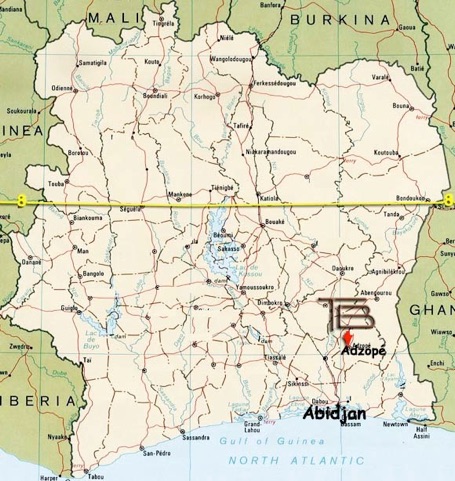Producing in the Ivory Coast



When Tropical Bois started its production in the 1980s, the Ivory Coast was a peaceful and prosperous country, a real jewel in Africa's crown.
However, beginning from 1999, a series of military coups, social upheavals and foreign interference in political matters drastically changed this situation.
The economy and social structure of the country were destroyed, leading its people to misery and desperation.
Unscrupulous individuals and firms profited from this situation and from the lack of government control, in order to obtain illicit favours from corrupted political officers.
Thus, dishonest firms have been able to obtain silence regarding illegal tree cutting and acquittance for non-existent reforestations, elude export and logging taxes, and even have their electrical expenses halved.
Moreover, they have evaded welfare contributions and have often paid their employees substantially less than the minimum established by law.
Without government control, deforestation wrecked havoc in the area above the 8th parallel, even though the delicate ecosystem of the area was already at risk because of the scarcity of trees in this savanna-like environment.
Today, these areas are destined to a rapid desertification, which is likely to result in irremediable consequences for both the climate and the agricultural system, thus endangering the lives of thousands.
National parks and forests under the jurisdiction of Sodefor have been similarly abused.
The firms and individuals responsible for these actions have illegally profited in several ways:
- first, because they have had access to timber for which they neither paid concessions fees, nor the fees normally required by Sodefor;
- secondly because they have been able to evade logging duties;
- last, because they have not incurred in reforestation costs or taxes, as these are proportional to the amount of timber legally logged.
Moreover, as they have had to conceal the actual amount of logged timber, they have often evaded the export taxes on the lumber and veneer produced from illegally logged volumes.
It is thus obvious that these enterprises have been able to sell their products at a much discounted price than those firms that have operated within the limits of the law, while obtaining a much higher return.
On the contrary, honest firms have been often exacted money from corrupted government officials that impeded their daily work in order to obtain illicit compensations.
It is thus clear that economic survival has been difficult for firms that have been duly paying taxes, giving a just retribution to their employees and suppliers, faithfully paying welfare contributions as well as concessions fees, and have kept reforesting regularly.
Since 2011, after the installation of the new Government recognized by the International Community, new steps have been taken to reinstate political harmony in the country.
Even though the Ivorian forest has been severely damaged and might never be the same again, there is now hope that the Ivory Coast might, at least from a social perspective, return to the state it was in before the recent years of sociopolitical upheaval.



